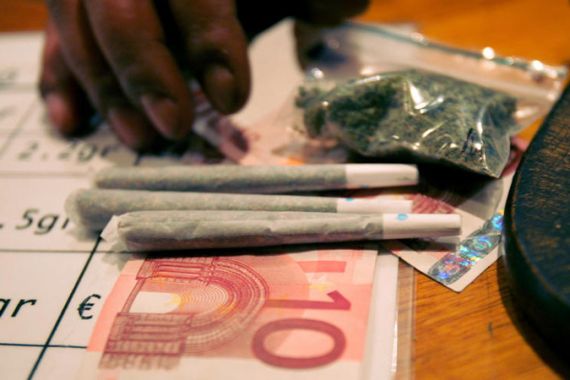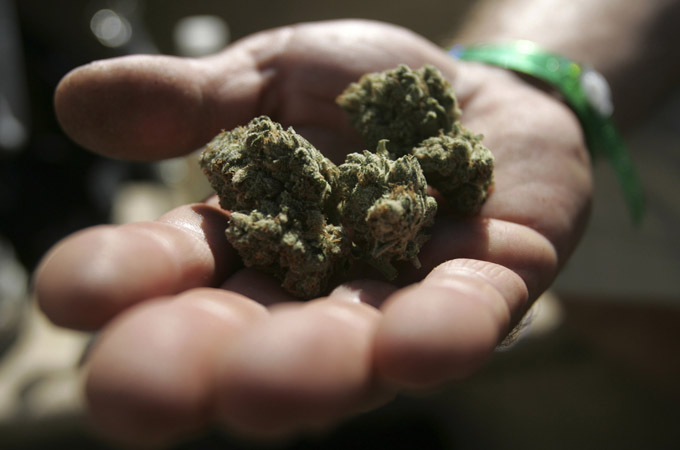Dutch drug tourism takes hit in border town
Cafe owners impose voluntary restrictions on cannabis sales to prove a government ban would not curb crime.

 |
| Coffee shop owners say restricting the sale of cannabis may have a chronic effect on the Dutch economy [Reuters] |
Foreign visitors will no longer be welcome to light up a joint or purchase cannabis in the coffee shops of Dutch border city Maastricht, unless they can prove that they are from the Netherlands, Belgium or Germany.
The ban, imposed voluntarily by the coffee shop operators in the Netherlands’ city that borders both Belgium and Germany, went into effect on Saturday. It is meant to show the Dutch government that a restriction on foreign visitors would not reduce crimes related to the consumption or trafficking of drugs.
“From the first of October, we will start with our so-called neighbouring countries criteria, which means that only people who live in Holland, Belgium or Germany are allowed to enter in the coffee shops in Maastricht,” Marc Josemans, chairman of the association of Maastricht coffee shops, explained.
| IN VIDEO |
|
Netherlands switches track on drug tourism – 2010 |
‘Weedpass’ proposed
The Dutch conservative coalition government that came into power last year announced plans to fight the massive tourist flow to the country’s coffee shops – where authorities have tolerated the sale of marijuana for personal consumption.
“This law will put an end to the nuisance and criminality associated with coffee shops and drugs trafficking,” said a statement issued in May by the Dutch health and justice ministries.
Among the government’s proposals to curb drug tourism is a controversial “weedpass”, a card only available to Dutch citizens. Under the plan, coffee shops would be operated like members-only clubs, open only to local residents and effectively barring foreign tourists.
Coffee shop owners argue that banning tourists will only drive the problem underground. They also blame failed policies, not the coffee shops.
“All these clients who are banned from the Dutch coffee shops right now, or the coffee shops in Maastricht at least, they have to return to the illegal circuit in their own country, therefore it will become a bigger problem and cause more criminality in those countries,” Josemans said.
“And it’s also partly the governments’ fault in these countries. Never did the Belgian, French, German or Italian, for example, governments take their responsibilities by creating a system like we did in Holland – a safe system where people can buy their cannabis products without being approached for hard drugs and without being contacted by criminals.”
Economic concerns
The European Court of Justice and the Dutch Supreme Court have both ruled it is not possible to discriminate against people within the European Union according to their nationalities, but made it clear that discrimination is allowed in specific circumstances, such as curbing drug tourism.
Maastricht coffee shop owners hope their own ban will show the authorities that the city would suffer financially if only church and museum-goers remain.
An estimated 2.2 million tourists per year visit 14 coffee shops in Maastricht and spend almost $190m outside the coffee shop, which is an equivalent to 1,700 jobs for the local citizens, according to the Maastricht Coffee Shop Association.
Sebastian, an American tourist, is already thinking of ways to get around the ban.
“I have a German driver’s licence, so I think I should be allowed in the coffee shop, right? I can be German, right?” he said.